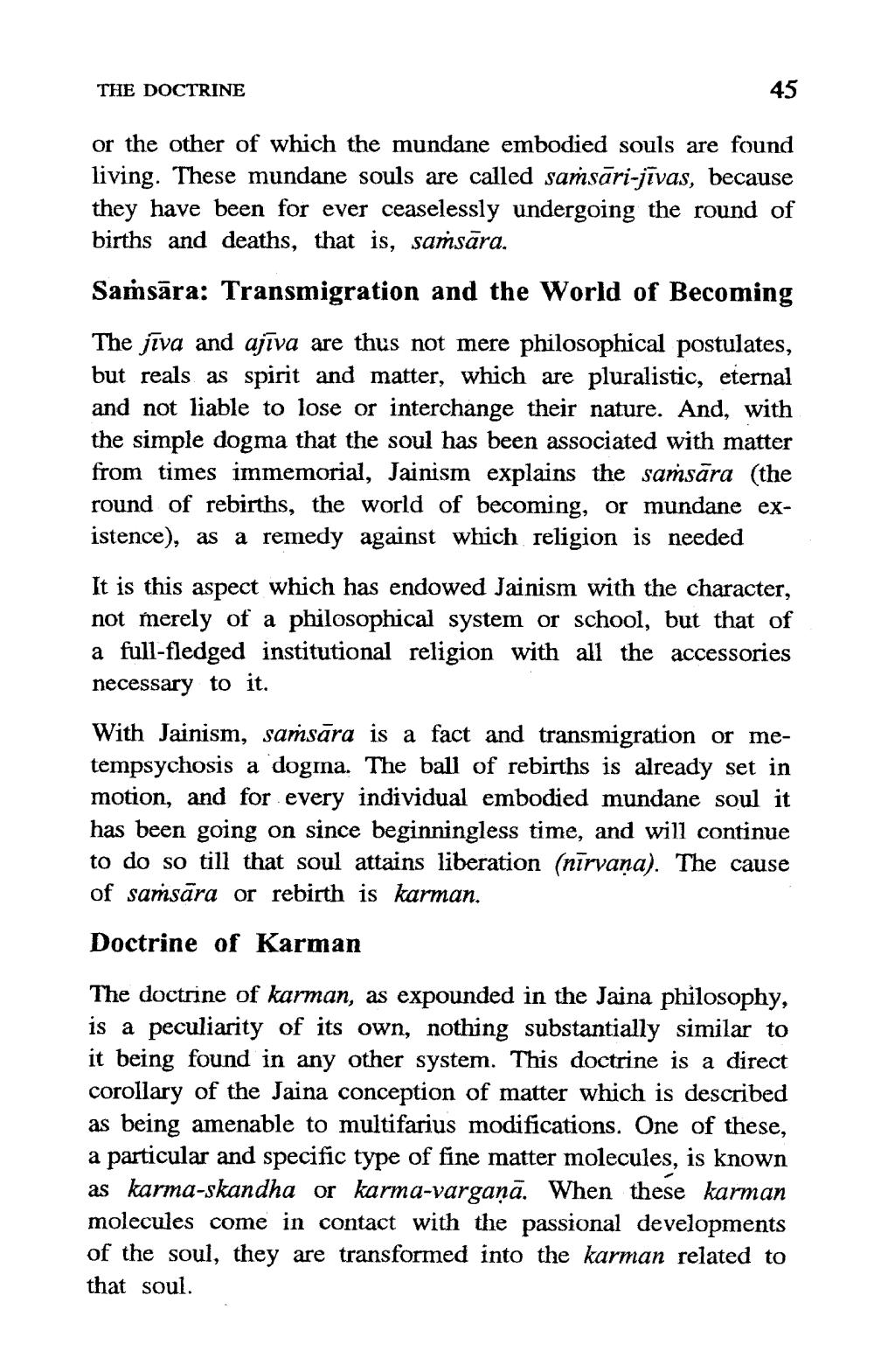________________
THE DOCTRINE
45
or the other of which the mundane embodied souls are found living. These mundane souls are called samsāri-jīvas, because they have been for ever ceaselessly undergoing the round of births and deaths, that is, saṁsāra.
Samsāra: Transmigration and the World of Becoming
The jīva and ajīva are thus not mere philosophical postulates, but reals as spirit and matter, which are pluralistic, eternal and not liable to lose or interchange their nature. And, with the simple dogma that the soul has been associated with matter from times immemorial, Jainism explains the samsāra (the round of rebirths, the world of becoming, or mundane existence), as a remedy against which religion is needed
It is this aspect which has endowed Jainism with the character, not merely of a philosophical system or school, but that of a full-fledged institutional religion with all the accessories necessary to it. With Jainism, saṁsāra is a fact and transmigration or metempsychosis a dogma. The ball of rebirths is already set in motion, and for every individual embodied mundane soul it has been going on since beginningless time, and will continue to do so till that soul attains liberation (nīrvana). The cause of samsāra or rebirth is karman.
Doctrine of Karman
The doctrine of karman, as expounded in the Jaina philosophy, is a peculiarity of its own, nothing substantially similar to it being found in any other system. This doctrine is a direct corollary of the Jaina conception of matter which is described as being amenable to multifarius modifications. One of these, a particular and specific type of fine matter molecules, is known as karma-skandha or karma-vargaņā. When these karman molecules come in contact with the passional developments of the soul, they are transformed into the karman related to that soul.




